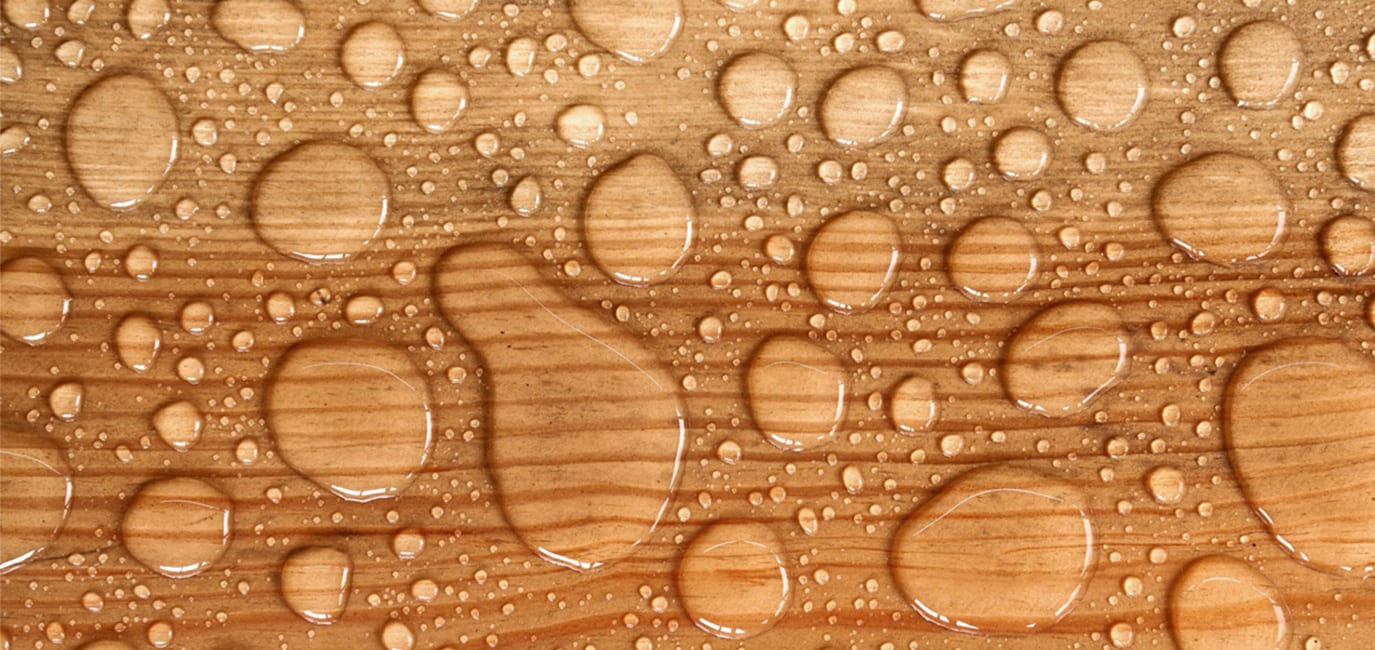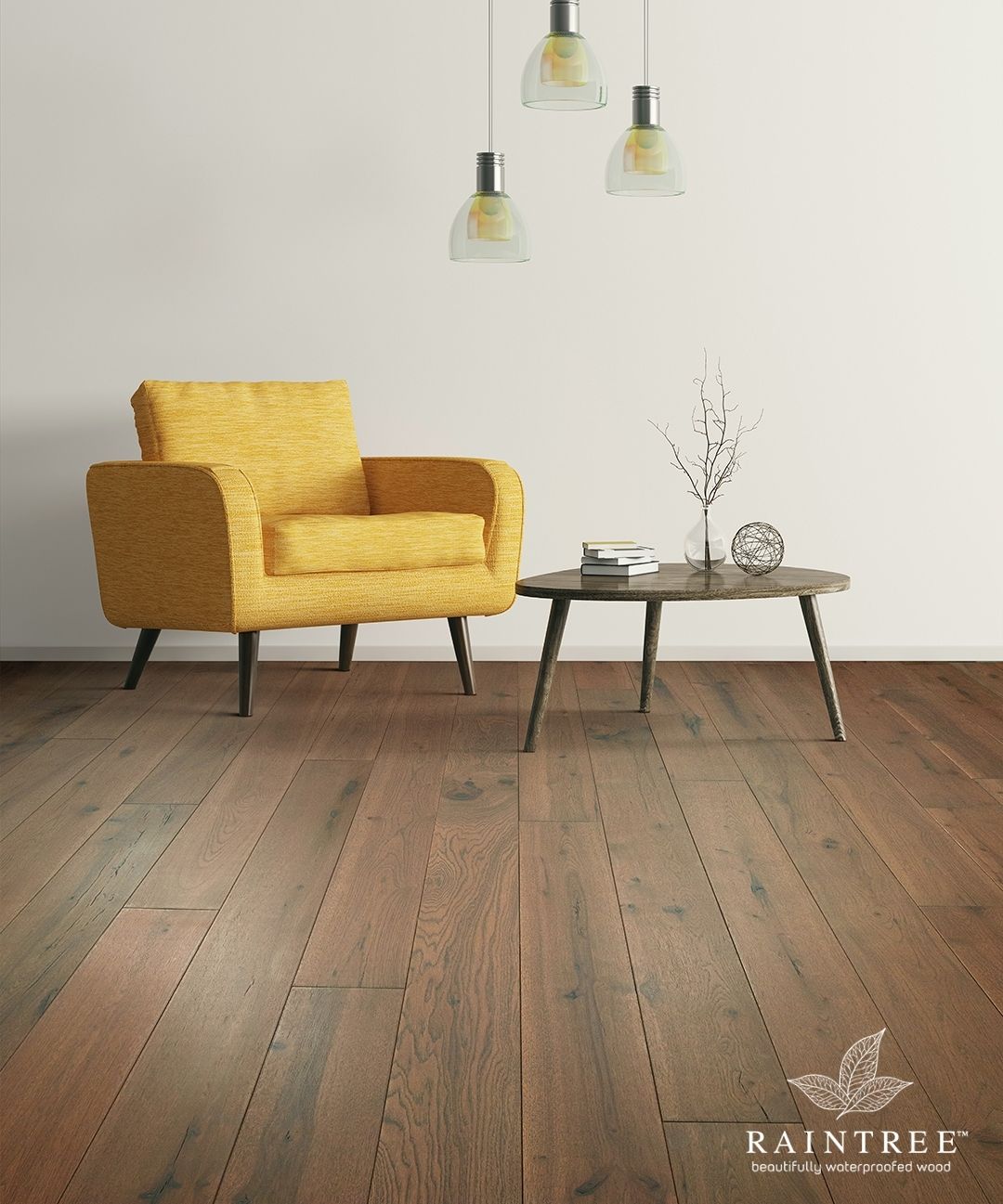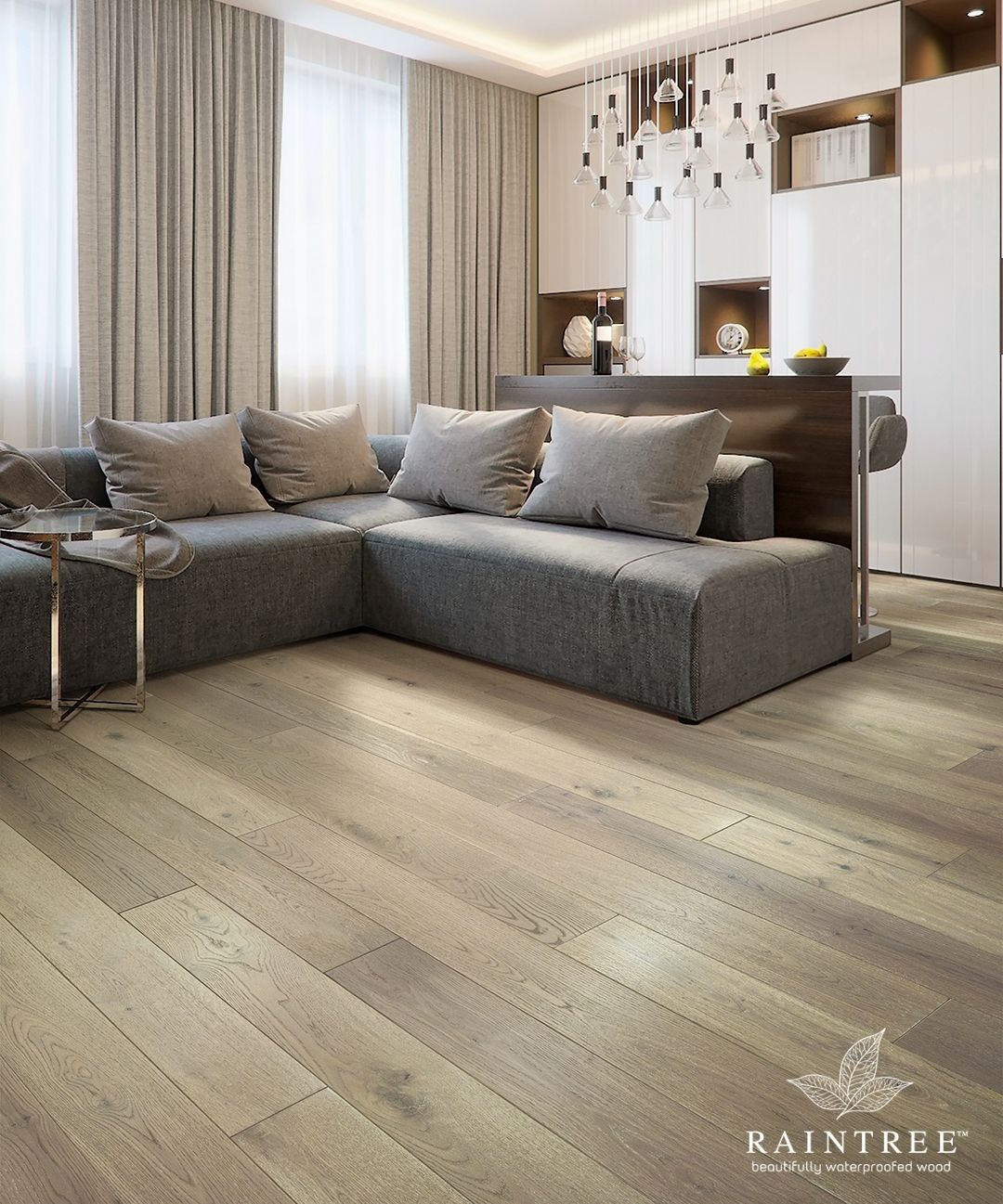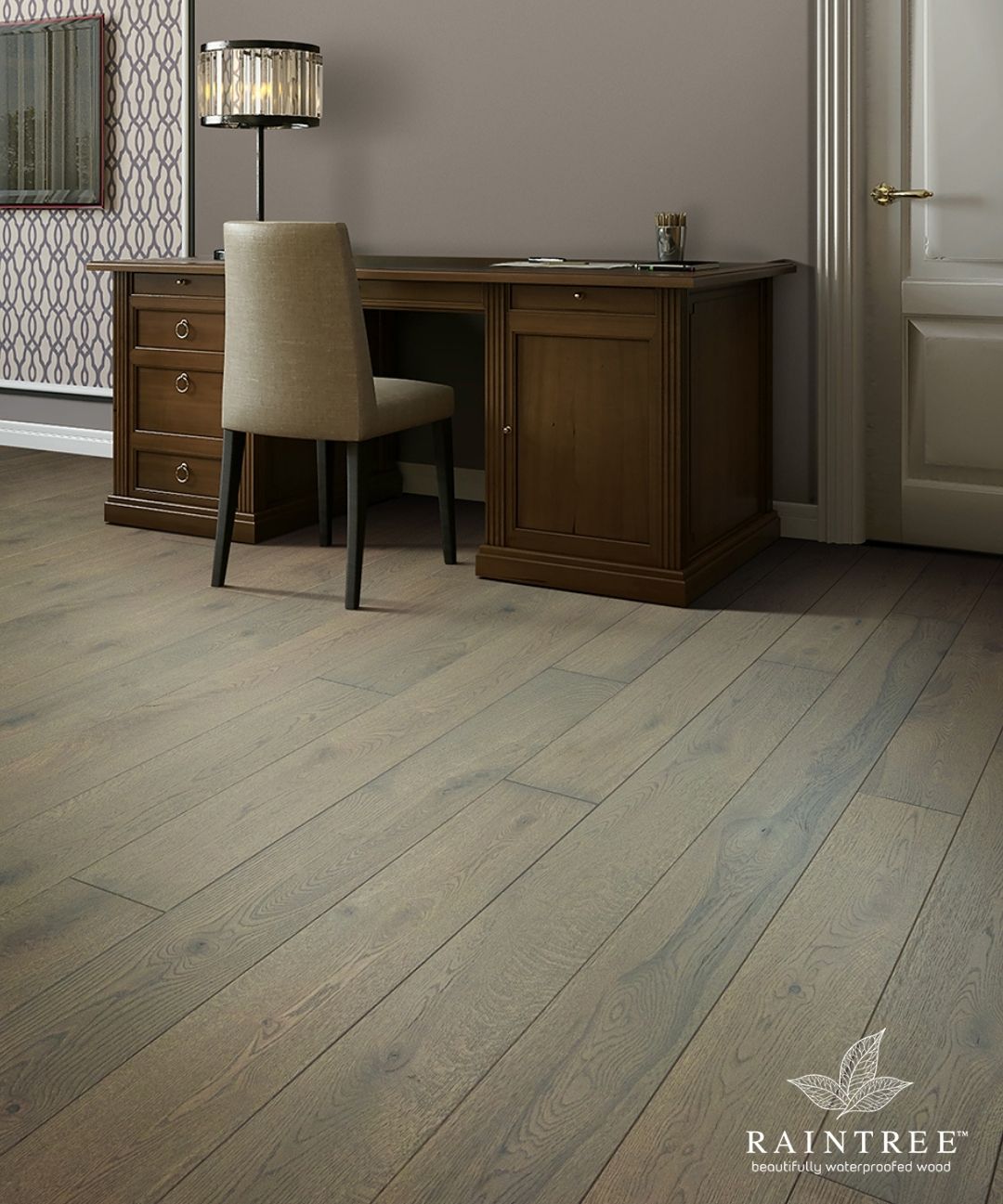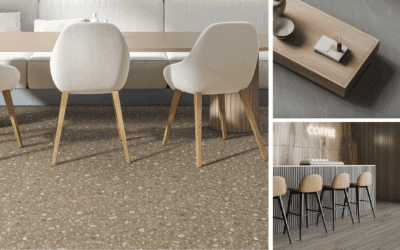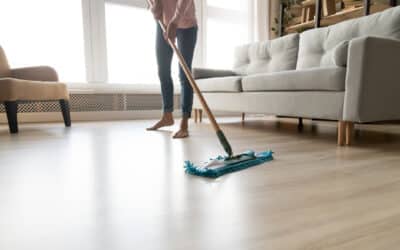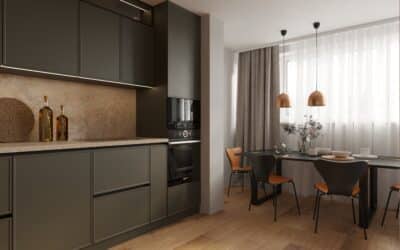Waterproof hardwood flooring gives you the timeless character of hardwood with a built-in insurance policy against water and liquids.
In this guide, you’ll learn about water resistant hardwood flooring, its pros and cons, and the best waterproof hardwood flooring. By the end, you’ll know the ins and outs of waterproof hardwood flooring.
Why Choose Waterproof Hardwood Flooring
One of the greatest threats to hardwood floors is moisture and liquids. Liquid that penetrates through the wood grain will destroy the wood from the inside out. And nothing is worse than installing a beautiful floor in your home only to have it fall into ruins.
Fading, stains, buckling, and warping can turn your property investment into an irreparable and expensive mess. Excessive moisture can also cause mold to grow and flourish in your home, creating a hazard to your health.
Waterproof hardwood keeps the water out, so your floors stay in place, which means you won’t be on high alert all the time about protecting your floors from spills.
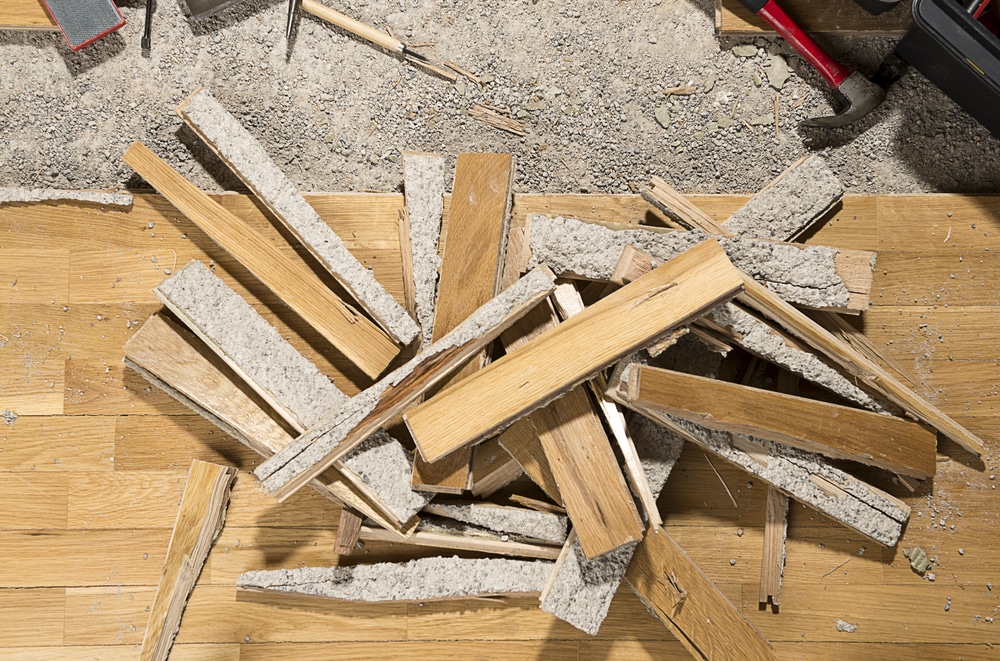
Waterproof hardwood has a real hardwood veneer that’s permanently attached to core made of 100% waterproof lamina.
It provides the same benefits of authentic hardwood, such as unique beauty, warmth, and unsurpassed comfort and feel.
But compared to solid or other types of engineered hardwood, you get a waterproof, composite core beneath the wood.
Ultimately, the core design of each individual wood plank determines whether it’s waterproof or not. If the plank’s core isn’t waterproof, then there’s always the risk of an eventual water breach.
Unlike solid hardwood floors, which are protected only by a water-resistant coating applied to the surface, waterproof hardwood is engineered to stop moisture and water from the subfloor up.
Waterproof Hardwood Vs Hardwood Flooring with a Water-Resistant Coating
The main difference between waterproof hardwood and solid hardwood (prefinished or unfinished) with a water-resistant coating is the time you gain to handle spills and leaks.
Waterproof hardwood can be exposed to liquids with virtually no time limit, so pooling water will remain on the surface without ever causing damage to your floor.
With solid hardwood, there’s no waterproof core – just solid wood. This means that liquid can penetrate deep into the grain, resulting in mold formation and ruin from within.
Because waterproof hardwood flooring has a waterproof core, it’s better at handling spills, wet feet, and standing water for extended periods of time. You can wait longer to wipe up spills without worry. Shop our selection of prefinished floors, unfinished floors, engineered flooring, and hardwood flooring options.
The Benefits of Waterproof Hardwood Flooring
Waterproof hardwood has four main benefits:
- Waterproof Protection
- The Uniqueness and Natural Beauty of Hardwood
- The Versatility to be Installed in Any Room
- A Pet-Proof and Kid-Friendly Wear Layer
Waterproof Protection
They say an ounce of prevention is worth a pound of cure. And this is true when it comes to selecting, installing, and maintaining hardwood floors in rooms prone to splashes and spills. Waterproof protection is wonderfully convenient because it gives you confidence in your floor’s longevity.
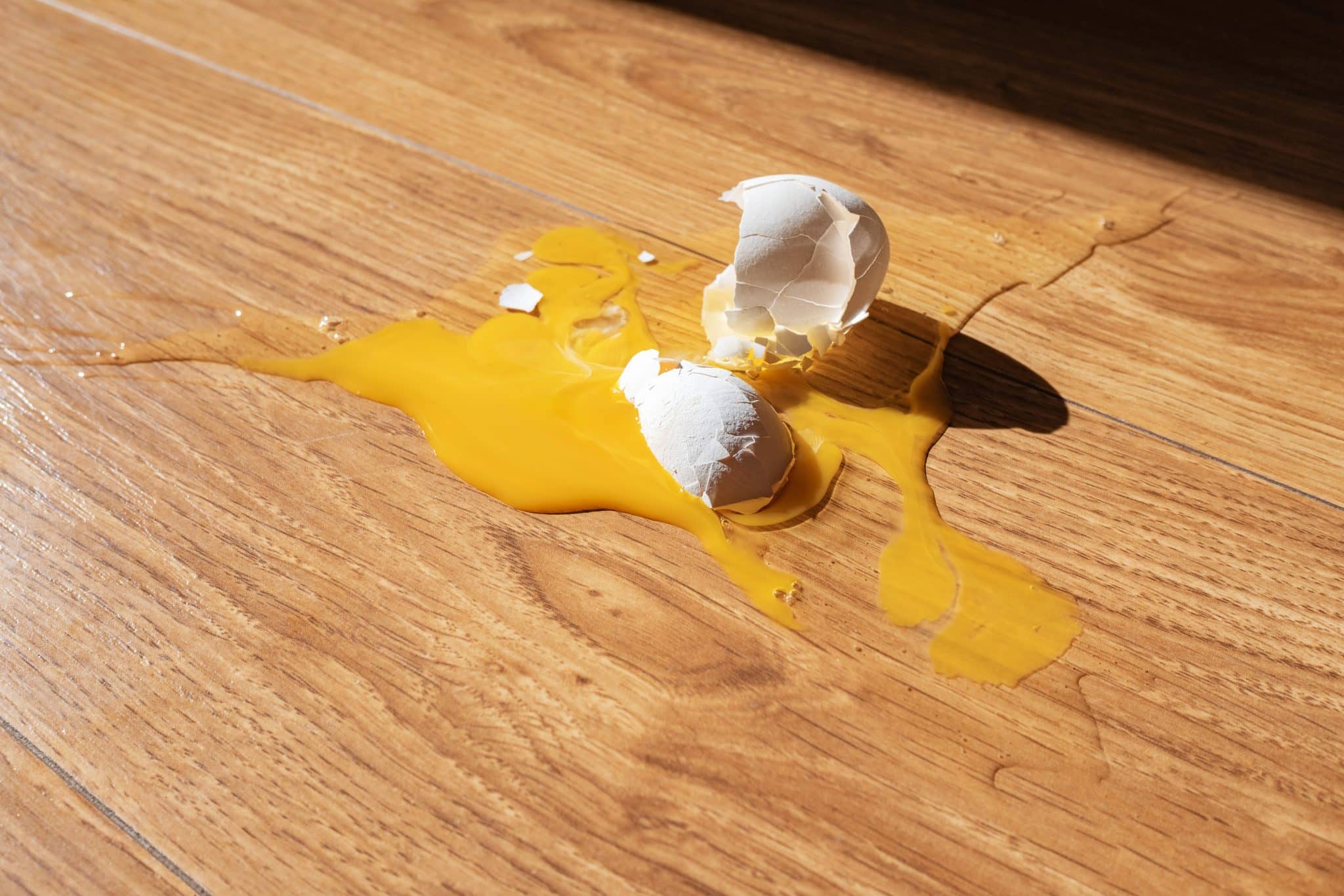
Waterproof hardwood flooring is ready for almost anything – from cracked eggs and big bowls of dropped cereal to a leaky washer or a mishap with the aquarium. This means you won’t ever find yourself stressing out about the numerous water issues common to home and property owners.
The Uniqueness and Natural Beauty of Hardwood
A properly installed, quality waterproof hardwood floor increases your property value with the uniqueness and natural beauty of hardwood. Natural hardwood is unsurpassed in look and feel, and you can’t fabricate it. Manufactured vinyl and laminate material designed to look and perform like wood isn’t the same as real wood, however close it appears.
Yes, you can get a similar look to hardwood with advanced embossed imaging, but eventually the image pattern repeats across your floor. And when it comes to performance, hardwood has no equal. Real hardwood has a one-of-a-kind aesthetic only nature provides.
The Versatility to be Installed in Any Room
Have you ever dreamt about having real hardwood floors in your kitchen, bathrooms, laundry room, or even your basement? Then waterproof hardwood flooring is the perfect choice. You can install it above or below grade level and put it in any room you choose.
A Pet-Proof and Kid-Friendly Wear Layer
If you’re an active family with pets, waterproof hardwood flooring is one of your best options. Waterproof hardwood is designed to bring peace of mind, including surprises from pets.
All of the best waterproof hardwood brands include enhanced wear layer protection that guards the wood against wet paws, urine, scratches, dents, and more. This wear layer is also an ideal surface for active children who love to play.
The Limitations of Waterproof Hardwood Flooring
Even though waterproof hardwood flooring offers many benefits, it also has limitations. You will want to be aware of them to make an informed decision. Knowing them up front will help you decide whether it’s the right type of flooring for your needs, preference, and lifestyle.
100% Waterproof?
The core is 100% waterproof, but the veneer is solid hardwood, which is held tight to the core. Wood will always begin to degrade when it’s fully submerged in water. That’s just the nature of wood. Installing waterproof wood flooring greatly mitigates the risk of water damage and prevents it from the inside. But it won’t eliminate the possibility for surface damage during certain disaster situations.
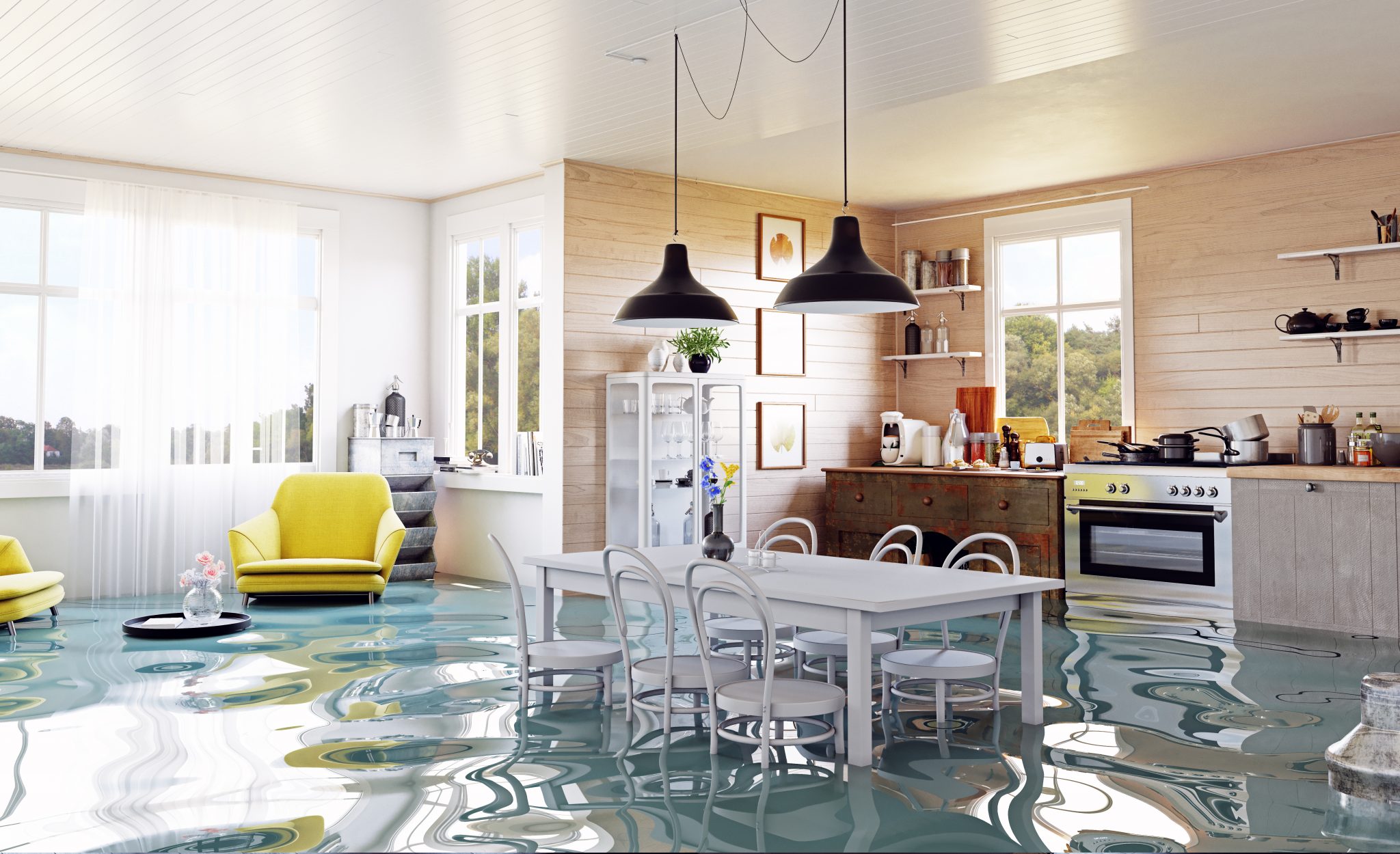
If your dishwasher seriously malfunctions, a pipe bursts, or a hurricane hits your neighborhood and floods your home, waterproof flooring offers limited protection. You will have to contact your insurance company after any unfortunate events where damage occurs beyond the floor. The difference is that your floor itself may still be salvageable, depending on how much water you’re dealing with.
A Thinner Wear Layer than Solid Hardwood
Another limitation is that the top wood layer thickness of waterproof hardwood (the veneer) is thinner than solid hardwood. The veneer thickness varies from product to product, and options range up to 1.8mm (70.8 mils).
A useful way to illustrate the thickness of a mil is to know that…
- 1 mil = 1/1000th of one inch
- Plastic wrap = 5 mils
1.6 – 2mm is the base recommended thickness required for screening or sanding and refinishing. A floor with a 1.6 – 2mm wear layer can be refinished 1-2 times and last anywhere from 30-40 years. Waterproof hardwood is built to last, but isn’t designed to be refinished.
Prefinished waterproof wood has an extra-protective coating of finish that isn’t easy to sand off.
Limitations to Scratch and Dent Resistance
The best waterproof hardwoods are pet-proof, but if you have a mastiff or other large dog whose nails aren’t consistently trimmed, your floor will be tested.
And if you have two big dogs with untrimmed nails, who love running between rooms to chase their squirrel and chipmunk friends they see outside, then you may want to test the flooring’s scratch-resistance before you commit.
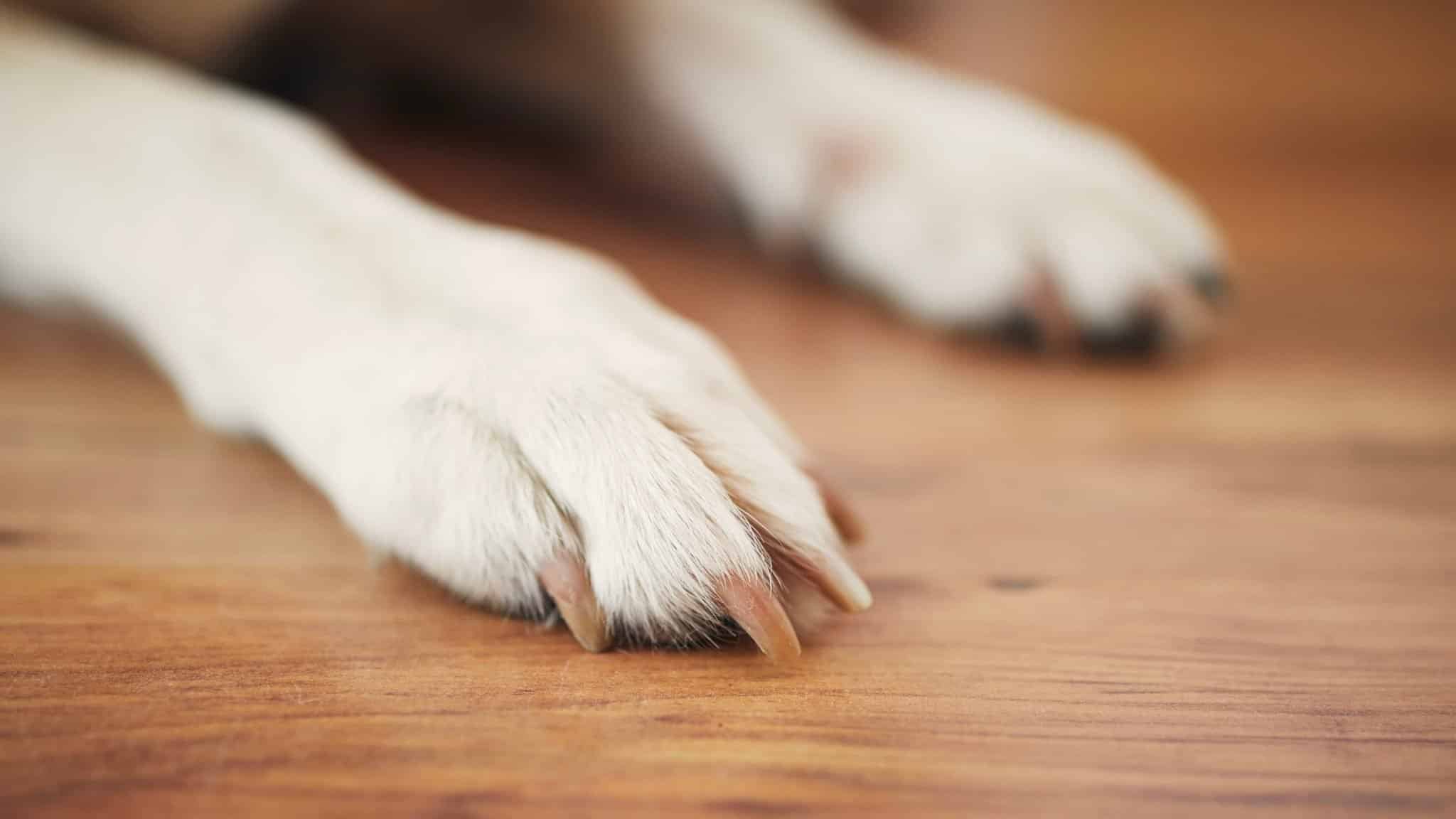
When it comes to maintaining any kind of hardwood floor in a home with pets, your best strategy is always prevention. For dog moms and dads this means, among other things, keeping their nails trimmed.
The Best Waterproof Hardwood Flooring
We sell waterproof hardwood flooring in our store, and offer various brands. We highly recommend Raintree waterproof hardwood.
Raintree Waterproof Hardwood Flooring
Raintree combines NWFA-qualified original hardwood designs with 100% waterproof materials. You can install these floors without glue or staples, and they’re finished with aluminum oxide, which is more durable than any polyurethane. Raintree waterproof hardwood floors are tough and easy to maintain, so you’ll be able to enjoy them for years to come.
Raintree Nashville Scene Collection
For sliced American hickory with a matte finish, look at The Nashville Collection by Raintree.
Raintree Aspen Scene Collection
For white oak with a matte finish, see The Aspen Collection by Raintree.
Raintree Laguna Vibes Collection
For white oak in natural colors, take a look at The Laguna Vibes Collection by Raintree.
Waterproof Hardwood Alternatives
Although there’s nothing quite like hardwood in your home for increasing your property value, LVP flooring has come a long way since tacky, old stick vinyl.
High image embossing gives you a surface that closely resembles hardwood. Many people have trouble telling the difference. It can be a great, cost-effective choice, especially in basements and bathrooms.
Knots look and feel more like knots. Beveled edges also provide a more authentic appearance, leaving you with a surface that looks and feels much more like actual wood than options available in the past. The main benefit of vinyl is that it’s extremely tough and many products are waterproof.
However, when it comes to elegance, effect, and value, nothing beats hardwood.
Luxury vinyl is designed to be impervious to water, so they’re more resilient than waterproof hardwood. Read our response to the question: Why and how to choose waterproof flooring?
Summary
Waterproof hardwood flooring offers many benefits and has a few limitations. With this flooring option, you can bring comfort, warmth, and the natural look of hardwood to any room. You won’t worry about water issues when you have waterproof wood floors like you will with solid hardwood.
At the same time, waterproof hardwood has its limitations. A thinner layer of wood is necessary for a waterproof design, but this thinner layer reduces the number of times you can refinish your floors. But in most situations, and with proper care, you won’t ever have to.
With proper maintenance and care, the longevity of waterproof hardwood exceeds most people’s expectations. In the end, it all comes down to what works best for you, your family, and your space.
If you’re looking for the beauty of engineered hardwood with extra protection, you will be very happy with waterproof hardwood.
Still on the fence about whether our floors will fit for your home? Try our floor visualizer to see what our flooring could look like for you.
